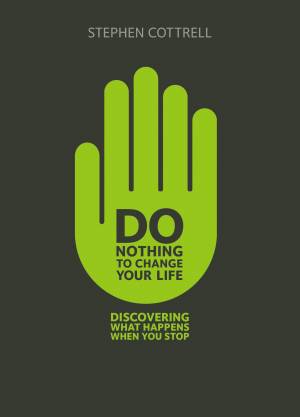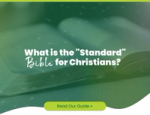Bishop: Who was responsible for Jesus death?
Sam Hailes
The Right Reverend Stephen Cottrell is bishop of Chelmsford and author of over 20 books. As a self described "all or nothing kind of person", Stephen was ordained at the age of 25, just a few years after becoming a Christian. Down to earth, real and honest, Stephen's books have helped thousands of Christians across the country. One of his most popular books, simply titled How To Pray has just been reprinted. Stephen's interests include writing, reading, cooking and music. He is a keen Spurs fan, but also supports his local team wherever he lives.
1. What have you given up for Lent?
I thought I’d give up meat this year. I think lent is about resetting your compass and examining your life. I think we as a nation and culture eat too much meat, it’s bad for our health and bad for the environment. I’m not planning on becoming a vegetarian but I am hoping that after lent I will eat less meat and be more careful about where I buy meat.
2. Is Lent biblical?
It is biblical in the sense that the early Christians looked to that period of 40 days where Jesus spent in the wilderness, fasting and praying as a prelude to his ministry. The Bible may not mention Lent but it has a lot to say about fasting and prayer. It’s good for Christians to have a time of the year when we take fasting, prayer, almsgiving and reading the Bible more seriously than we normally do, with the aim that we build that into the rest of our life.
3. What is your book The Nail about?
The Nail is a little book of meditations. It poses the question ‘who was responsible for the death of Jesus?’ Each chapter of the book is someone speaking in the first person as if the crucifixion has just happened that afternoon. Each character justifies their actions then passes the blame on to someone else. The book begins with Peter saying “ok I know I let him down a bit but it’s not my fault he’s on the cross, blame the soldier who put him there”. Then the centurion says “it wasn’t my fault, I was just following orders” and so on.
Different characters justify their position and the book ends with a meditation by Mary Magdalene who is the one person in the book who acknowledges that she nailed him there. We often like to justify ourselves and blame others, but actually he hung and suffered there for us and he died our sins. The final chapter says 'will you now let Jesus forgive you for the things you’ve done wrong?'
4. What would you say your style of writing is?
I tend to write short books so they aren’t too daunting for people who don’t read a lot. I’m not an academic theologian so I enjoy writing more imaginative and reflective books. My aim with almost all my books is to try to get people to see the story a bit differently and see it from a different angle.
5. What is Hit The Ground Kneeling about?
You’ve probably been in meetings where someone says 'we need someone who can hit the ground running' and I can see the superficial attraction of that. But actually in Christian ministry, the best leaders aren’t necessarily the ones who rush in and rush off. Sometimes the best leaders are the ones who make a priority of prayerful contemplation and reflection before moving. The model for that is Jesus himself. There are nuemous examples in the gospels where Jesus disappears and is unavailable, because he’s given a priority to prayer and reflection.
6. Why did you focus on the life of Peter for your book Come and See?
It’s a book for new Christians who are just beginning to get into some of the habits and disciplines of the Christian life, particularly reading the Bible. I thought if you take Peter as your guide you won’t feel too daunted. You can relate to him because he’s so human. He lets Jesus down so many times in the gospels, yet in the Acts of the Apostles he becomes the rock on which the church is built. Even though we fail, we mess up and we get it wrong, by God’s grace we can be transformed and we can do amazing things.

7. Do Nothing to Change Your Life sounds like a great idea. But many of us find it hard to slow down and stop. Why is that?
It is hard. Books are like sermons, you have to remember the preacher is preaching to himself as well as the congregation.
I think sometimes in the church we look around at the world and think the world is frantic and driven so we must be frantic and driven as well and then we’ll feel at home.
The Sabbath is almost completely lost to us as an idea that used to shape our lives. It’s quite a fun book. It’s really an evangelistic tract which says the Christian life has some ancient wisdom about how to live our lives that’s relevant for everybody.
8. You’ve been very passionate about evangelism. Why do so many struggle with it?
Don’t imagine that I find it easy just because I talk about it a lot. What I would say is this: When a baby is born into your family, or someone gets married, or your team wins at football, there’s nothing more natural than to tell people about it.
When I tell people joyfully that I’ve seen a good film or read a good book, I’m not oppressing them. I’m sharing good news. At a very basic level that’s all it is.
If I find it impossibly difficult to tell anyone about my Christian faith, is the real issue that I haven’t received it as good news? You can’t give what you haven’t got.
9. What’s the best Christian book you’ve read?
The Revelations of Divine Love by Julian of Norwich. She wrote it in the 14th century and it was unknown and undiscovered for centuries. She was the first woman in England ever to write a book. Nobody really knew about this book for centuries. It just sat there on a shelf for hundreds of years.
In the late 19th century it was discovered. When you read it, it’s so contemporary. She had these visions and she simply wrote down what God told her in the visions. It’s almost like God gave her something that was not for her age, but for our age. It’s the most remarkable book.
10. What has God been teaching you recently?
Obedience. When I became bishop of Chelmsford people ask me, 'what’s your vision?' I reply 'I haven’t got one', which takes them by surprise because you’re supposed to have a vision. But I know a man who does. I don’t think it’s my job to have the vision, that’s God’s department. We must discern what God’s vision is for his church and we must be obedient to that.
Latest Blogs

Gifts
Finding Your Symbol of Faith: A Guide to Christian Cross Necklaces
Looking for the perfect symbol of faith? Explore our guide to Christian cross necklaces, from rustic wooden designs and sturdy men's chains to elegant silver pendants.

Gifts
The Best Christian Gifts for Under £20
Looking for a meaningful gift that won't break the bank? Explore our guide to the best Christian gifts under £20, from inspiring journals to beautiful home decor.

Gift Guide
15 Confirmation Gift Ideas for Boys and Girls
Celebrating a confirmation? Discover 15 meaningful gift ideas for boys and girls, from youth Bibles and jewellery to inspiring journals and keepsakes.

Bible
30+ Powerful Quotes About the Bible (For Inspiration in 2026)
Looking for inspiration? Discover a curated collection of the most powerful quotes about the Bible, from famous historical figures to modern theologians and Scripture itself.

Bibles
What is the "Standard" Bible for Christians?
Is there an "official" Bible that all Christians use? We explain the difference between the NIV, KJV, and ESV, and help you find the standard text for your church or personal reading.

Bible
"I Keep Failing to Read the Bible" – 5 Tips to Make the Habit Stick
Do you start a Bible reading plan only to quit a few weeks later? Stop the cycle of guilt. Here are 5 psychological tips and practical changes to help you build a Bible habit that actually lasts in 2026.
